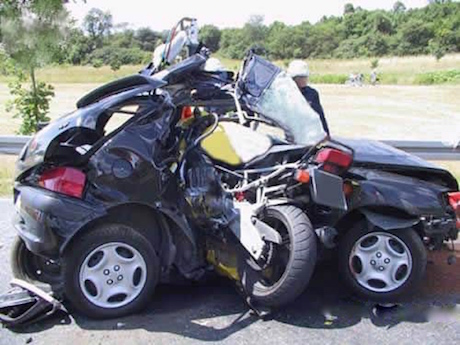You won’t see this appellate decision in any newspaper. You just won’t. It’s not sexy.

There’s nobody famous, the lawyer didn’t sue for a bazillion dollars and the jury didn’t award a gazillion dollars.
Because that’s where the media looks. Fame and money. Runaway juries. That’s what gets the clicks.
Except that this jury was a runaway. It just ran away in favor of a defendant car driver and awarded zippy-do-da to the injured plaintiff. Ergo, no story, or at least no story that gets clicks.
Out of the Appellate Division (4th Department) comes a decision reversing a jury verdict in favor of the defendant.
The facts were simple: A car turned left in front of a motorcycle. The kind of turn you teach your children to fear when they learn to drive. You don’t want to involved in a t-bone. From any perspective. And certainly not from the perspective of a motorcycle.
The view of the turning driver was unobstructed and there was a clear line of sight. The driver admitted at trial that he “never saw the plaintiff or his motorcycle prior to the accident.” There was, in other words, no reason not to “see what what there to be seen.”
The jury, inexplicably, came back with a defense verdict. Maybe they hated lawyers. Maybe they hated lawsuits. Maybe the judge gave them the case late Friday afternoon and they wanted to get the hell out of the courthouse. Maybe they hated the plaintiff or hated motorcycles or hated the lunch that the court officers served to them. Maybe a million things.
Juries are funny that way. They don’t always do that which seems abundantly obvious. They engage in jury nullification, ignoring the law, or simply not listening to the law, or not caring because they have other agendas.
Some auto cases are straightforward. Like a hit in the rear. Or, in this instance, a left turn case.
The trial judge should have tossed the verdict out as against the weight of the evidence. That didn’t happen. So the appellate division did it.
Reversed, as the jury finding “that defendant was not negligent could not have been reached on any fair interpretation of the evidence.”
It’s a tough standard to meet. But the facts as laid out by the Fourth Department make it look like a no-brainer. The case, decided last week, is Cramer v. Schruefer. A new trial was ordered.
